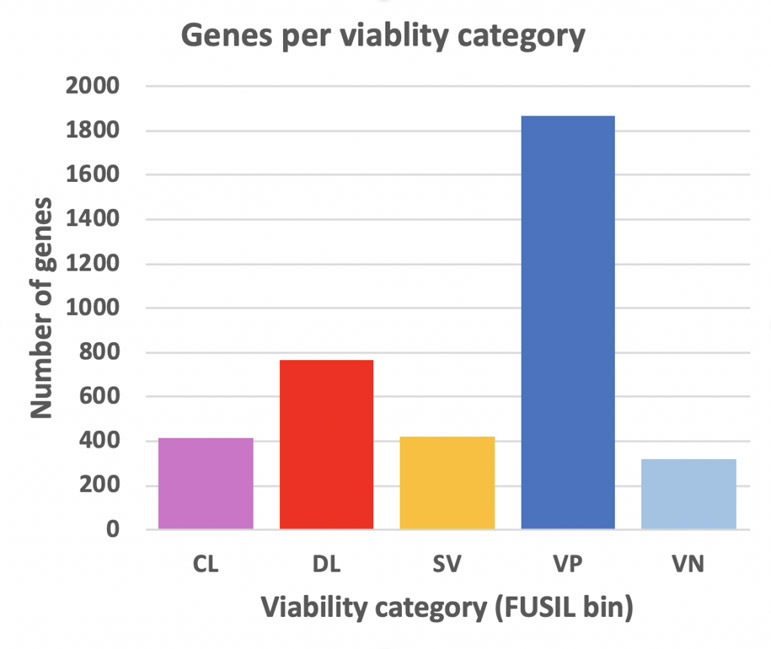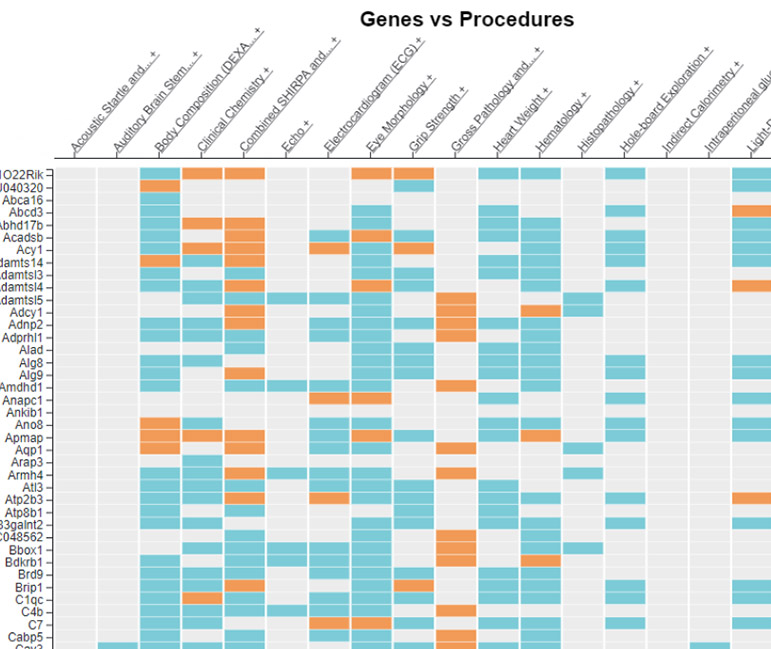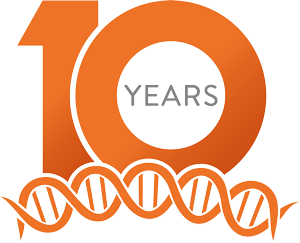This page is to highlight IMPC achievements throughout the past 10 years, and how the scientific community can come take part in a selection of workshops and meetings the IMPC will be hosting throughout the year.
For the 10 year Anniversary, the IMPC is organising a series of thematic virtual workshops with free registration. To view the list of workshops we will be running, please visit our workshops website.
The consortium has released a 2021-26 Strategy Document which outlines it’s targets for the next 5 years. Finally, the IMPC programme has also released a 2020 Highlights website showing all the Consortium’s achievements from last year.
10 Years of Excellence
Charles River Labs Interview: Steve Brown talks about the 10 year achievements of the IMPC and on what the future holds for the consortium, in an interview with CRL
2021 marks the 10th anniversary of the IMPC. Over the last 10 years the Consortium has produced resources, data, and new knowledge that have had a profound impact on biomedical science and its capacity to identify dark gene function, essential genes, sexual dimorphism, genotype comorbidities (pleiotropy), and mechanisms of disease.
The IMPC’s programme has had a transformative impact across biomedical discovery research, medical genetics and assisting rare disease diagnosis, enabling preclinical studies, and freely providing data and biological resources that are being used in drug target discovery along with the development of therapeutics and clinical trials that will bring target treatments to market.
Completed series of celebratory workshops
Throughout the year, we hosted a variety of meetings and workshops to highlight areas and successes IMPC has brought to the scientific community.
We are hosting recordings of our previous celebratory workshops for people who were unable to attend the event or wish to view it again. They are ‘open to watch’, without registration
- 1st workshop – IMPC Beyond the Borders – https://cloud.mousephenotype.org/s/NDLgMmXW9H2Qfkz
- 2nd workshop – Exploring the benefit of mammalian lethal genes – https://cloud.mousephenotype.org/s/tNmXTq97m3Jb5RT
- 3rd workshop – IMPC mouse models contribution to current advances in metabolic and cardiac research – https://cloud.mousephenotype.org/s/PdFkLPemXsFBNaR
- 4th workshop – Translational value of mouse models in nervous system diseases – https://cloud.mousephenotype.org/s/YtnkzaRdCypSzwZ
- 5th workshop – Production and Disease Modelling Workshop – https://cloud.mousephenotype.org/s/8tEXGKXeXzTnWf2
Key Publications
Since 2016, the IMPC has published several high impact seminal papers delivering pan-genomic insight into the relationship between genes and function. All of the papers demonstrate and underline a key notable outcome; identification across multiple disease areas of an extensive, unexplored landscape of novel genes and potential mechanisms in areas as diverse as development (Dickinson et al. 2016), metabolism (Rozman et al. 2018), deafness (Bowl et al. 2017), vision (Moore et al. 2018), and bone pathologies (Swan et al 2020).
2016: DICKINSON et al. (2016) High-throughput discovery of novel developmental phenotypes. Nature. 2016 Sep 22;537(7621):508-514. doi: 10.1038/nature19356. PMID: 27626380.
2017: MEEHAN et al. (2017) Disease model discovery from 3,328 gene knockouts by The International Mouse Phenotyping Consortium. Nat Genet. 2017 Aug;49(8):1231-1238. doi: 10.1038/ng.3901. PMID: 28650483.
2018: ROZMAN et al. (2018) Identification of novel genetic elements in metabolism by high-throughput mouse phenotyping. Nat Commun. 2018 Jan 18;9(1):288. doi: 10.1038/s41467-017-01995-2. PMID: 29348434.
2021: BIRLING et al. (2021). A resource of targeted mutant mouse lines for 5,061 genes. Nat Genet 2021 Apr; 53: 416–419. doi: 10.1038/s41588-021-00825-y. PMID: 33833456.
View All Consortium Publications
Key Data
The IMPC has generated KO mutations for 9,719 genes; over half of known mouse <-> human orthologs. The entire global biomedical research community has generated KO mutations for 13,657 genes, of which 5,646 are exclusive to IMPC.
As well as our data, we have also curated landmark pages which display data for certain research areas and physiological systems:

Essential Genes
We present integrated views of viability data to help researchers explore the full genetic spectrum of essentiality and aid unveiling yet unknown genetic associations to human disease

Late Adult Data
Selected mouse lines enter the ageing pipeline, in which specimens are aged to see gene knockout effects later in life.
We have landing pages for a wide range of data from the consortium. To view what else we have to offer, view our IMPC Data Collections page
COVID-19 Response
The ongoing COVID-19 pandemic has highlighted the importance of biological and biomedical research in the fight against disease and its key role in providing treatments and vaccines. At the IMPC, we know and understand how vital it is that the scientific community continues to share resources, knowledge and expertise.
The IMPC is also a part of the Global Mouse Models for COVID-19 Consortium (GMMCC). A global partnership of mouse genetics, genomics, and functional assessment centres. For more information visit their website.
View Resources page View Response Post

